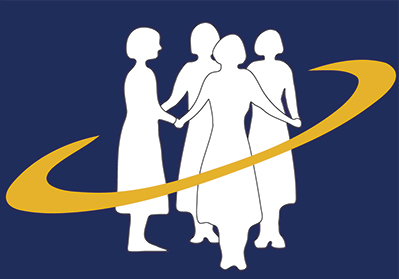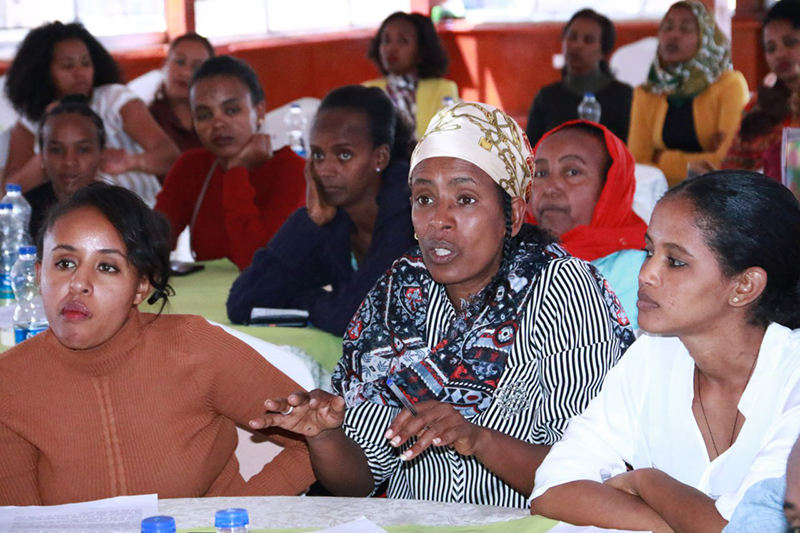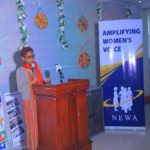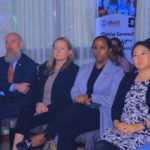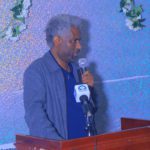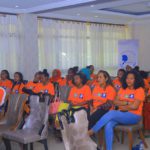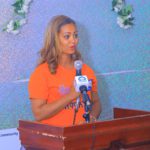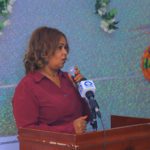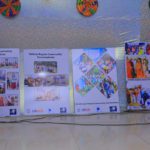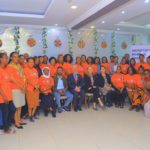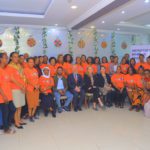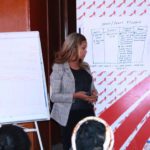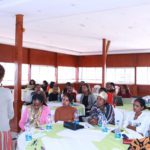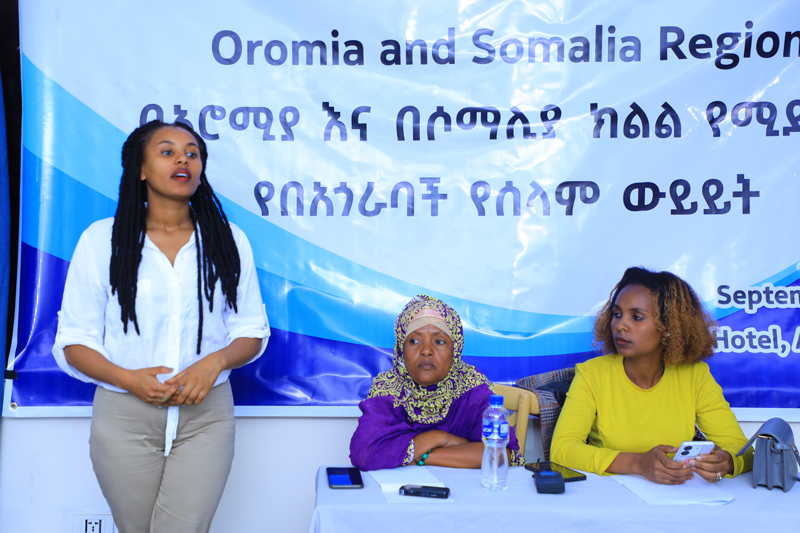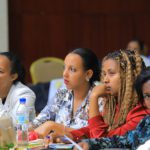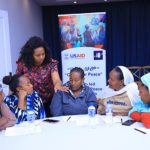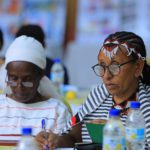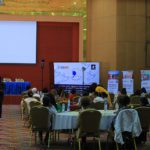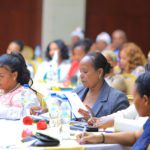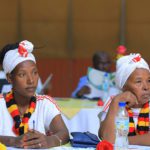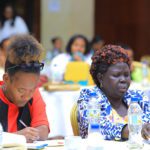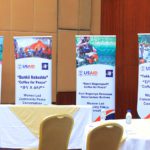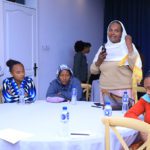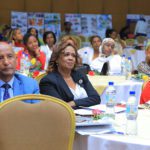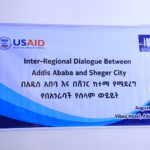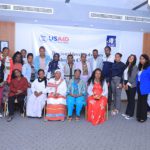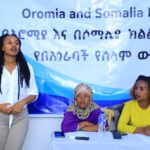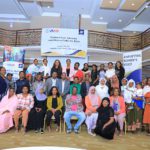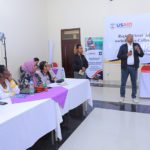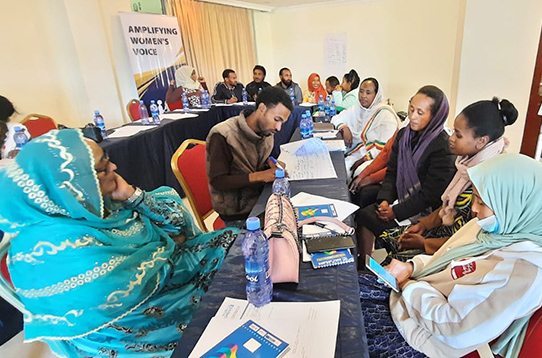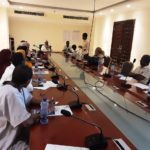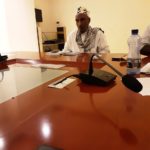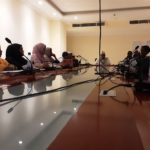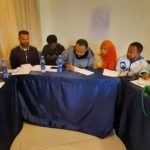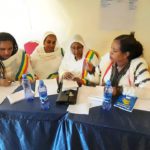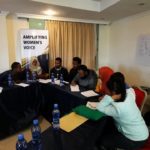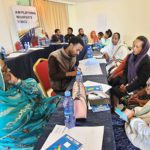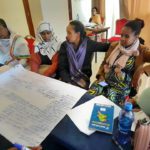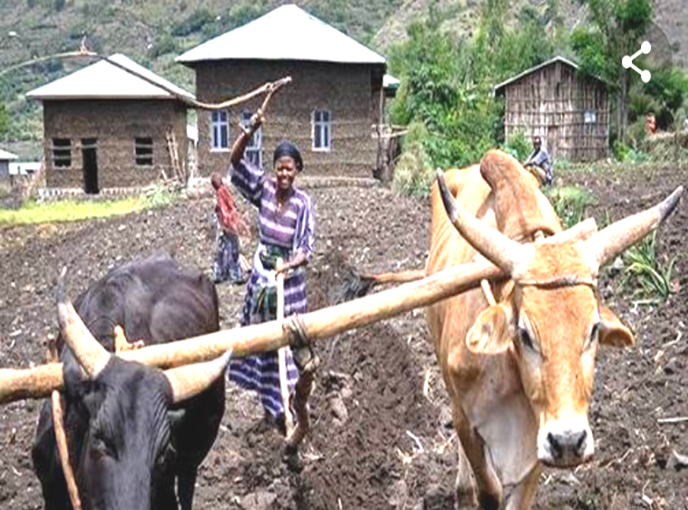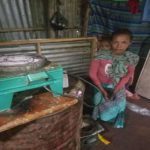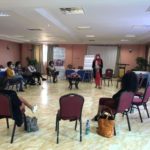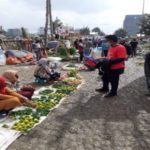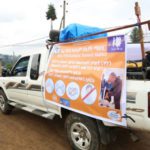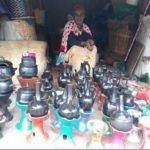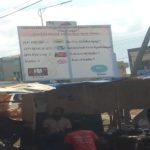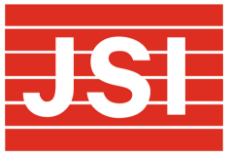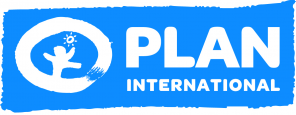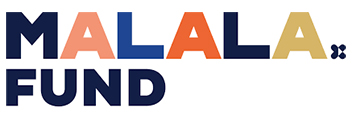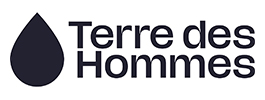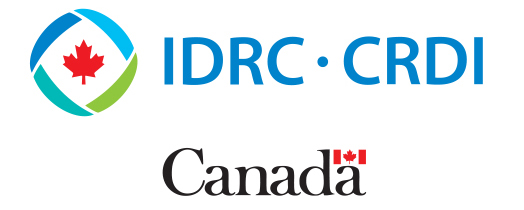Recently Completed Projects
Page 1
Project: Enhancing community engagement in the
prevention of FGM in Afar Region
Objective: Female genital mutilation (FGM) remains a critical challenge in Ethiopia, impacting the health and well-being of women and girls across the country. In the Afar region, the practice is particularly prevalent, with 91% of women aged 15-49 years having undergone some form of FGM (EDHS 2016). This deeply rooted tradition, often perceived as a rite of passage and a means of social control, requires sensitive and sustained intervention.
Recognizing this challenge, NEWA, in partnership with GIZ, implemented the “Enhancing Community Engagement in the Prevention of FGM in the Afar Region” project. This initiative focused on two key pillars:
Empowering Women’s Rights Organizations: Five Afar-based organizations – Family Service Association, Lucy Integrated Development Associations, Assale Pastoralist Multi-Sectorial Development Organization, Rohi Weddu Pastoral Women Development Organization, and Vision with Action Women Development Organization – received vital training and resources to effectively advocate for and support women affected by FGM.
Promoting Community Awareness and Attitudinal Change: By engaging community leaders, religious figures, and even traditional circumcisers in open dialogues and awareness campaigns, the project aimed to foster understanding of the harmful consequences of FGM and encourage positive social change. This approach recognizes the crucial role communities play in upholding or transforming harmful practices.
The project’s objectives were ambitious yet crucial:
Shifting attitudes: By dismantling misconceptions and highlighting the negative impacts of FGM, the project sought to gradually shift community norms and practices.
Building capacity: Equipping local organizations with essential knowledge and resources empowered them to take ownership of the fight against FGM and actively influence their communities.
Promoting accountability: Through increased awareness and advocacy, the project aimed to hold both traditional and government authorities accountable for upholding women’s rights and protecting their health and well-being.
This project marks a significant step towards addressing the complex issue of FGM in Afar. By empowering communities, promoting positive social change, and building the capacity of local organizations, we can work together to create a future where girls and women are free from harmful practices and can fully realize their rights and potential.
Duration: February 2022 – December 2023
Implementation Area: Afar region
Partner Organization: GIZ
Project: Activism Against Gender-based Violence
Objective: In the aftermath of the Tigray conflict, which erupted in November 2020, women and girls have borne the brunt of this trauma, suffering disproportionately from the violence and displacement it has wrought. The pervasiveness of sexual and gender-based violence (SGBV) has shattered their lives, leaving them with deep psychological wounds and compounding the hardships they already face.
To effectively address the aftermath of conflict and pave the way for sustainable peace, it is imperative to prioritize the recovery of women and girls. Their active participation in the peace-building process and their ability to raise their voices against SGBV hinge on their ability to heal from the trauma they have endured.
Prioritizing women’s recovery is not merely a humanitarian imperative; it is a strategic necessity for fostering sustainable peace. When women are empowered to heal and rebuild their lives, they become catalysts for positive change, advocating for the rights of their communities and contributing to the restoration of stability and harmony.
The exclusion of Tigrayan women from the Ethiopian women’s peacebuilders during the conflict highlights the urgent need for trauma-informed interventions before their engagement in peacebuilding initiatives. Before bringing women from the Tigray region to the “Ethiopian Women’s Peace Builders”, it is crucial to provide training and establish a platform for them to share their experiences and embark on a healing journey. Psychotherapy, or talk therapy, provides a safe space for them to process their trauma and work towards recovery. Additionally, training on peacebuilding and conflict resolution empowers them to actively contribute to peacebuilding efforts.” To achieve that as part of the 16 days of activism, NEWA and MUMS TO MUMS implemented a project called “Activism against Gender-Based Violence” in the Tigray region. The project achieved trauma debriefing sessions, experience sharing and photo exhibition, peacebuilding training, and the joining of Tigray women in two women peacebuilders. A total of 43 participants attended the trauma healing sessions and 23 participants attended the peace-building training. The purpose of this session is to help participants overcome the effects of the trauma they have experienced and provide them with coping skills to aid them in their peace work. The project successfully shed light on the issues facing the Tigray region, potentially leading to greater support and intervention. The program’s activities laid the groundwork for future peacebuilding and trauma healing interventions, creating a pathway toward sustained recovery.
Duration: November 2023 – December 2023
Implementation Area: Tigray region Mekelle
Partner Organization: USAID/OTI
Project: Coffee for peace
Objective: The Ethiopian Women Peacebuilders (EWPB) is the first of its kind in Ethiopia. Initiated by the Network of Ethiopian Women’s Association (NEWA), the EWPB is designed as a broad-based and inclusive organization of women peacebuilders, composed of organizations and individuals from every region of our country. It is designed to create empowered women at the grassroots, build capacity, embed them as agents of peace in their institutions and communities, and coordinate activities of women peacebuilders. EWPB intends for women’s agencies to be respected and for their perspectives to influence decision-making at all levels, contributing to the WPS NAP design and implementation in Ethiopia. The process is designed in such a way that it ensures a safe, convenient, genuine, and natural space for the most vulnerable women to own the process of articulating their peace and security agenda in their localities and languages.
The ‘Buna Le Selam’ project, is therefore designed to redress these gaps that have discriminated against half of the population because of the discriminatory social fabrics, combined with the existing conflict, drought, and other crises. The project aims to ignite a transformative dialogue, nurturing a safe space for women to confront the scars of conflict and envision a peaceful future. By fostering open discussions about the impact of war, ‘Ethiopian Women Peace Builders’ empowers women to become architects of peace, translating their newfound knowledge into tangible action within their communities.”To date, the project has completed, Peace community conversations in 16 districts of eight regions, three inter-regional dialogues between six neighboring regions, and eight regional-level advocacy workshops with the relevant government bodies. As a final Miliston, the project produced a “Coffee for Peace outcome launching document” that shows the process and the findings of a women’s community conversation on peace. This project has a significant contribution to the advancement of women’s peace and security in Ethiopia. Engaging women at all levels of society and helping to ensure their perspectives are taken into account in peacebuilding and security processes.
Duration: February 2021 – October 2023
Implementation Area: National Level
Partner Organization: USAID/OTI
Project: Preventing and Responding for SGBV in selected districts Amhara and Afar Regional States
Objective: To Enhance WLOs/WROs and representatives of self-organized women’s groups leadership skills to engage in humanitarian decision making and to Increase WLOs/WRO knowledge and access to tools to lead/engage in GBV mitigation and response strategies and programming in line with international standards and do no harm principles.
Duration: 2021 – 2023
Implementation Area: Amhara, Desse and Afar , Semera
Partner Organization: UN Women
